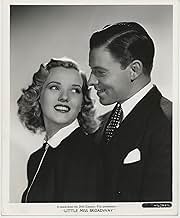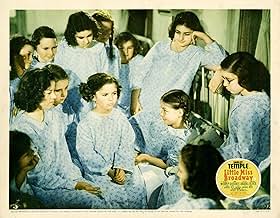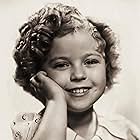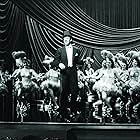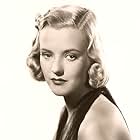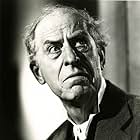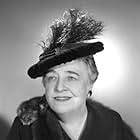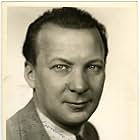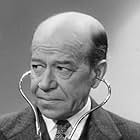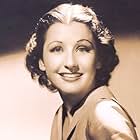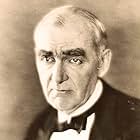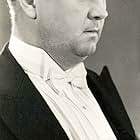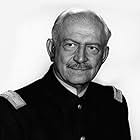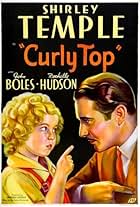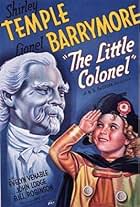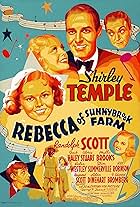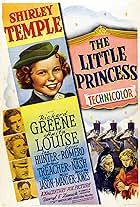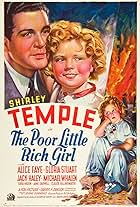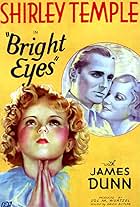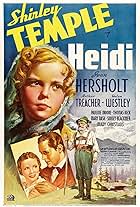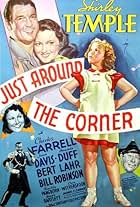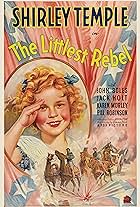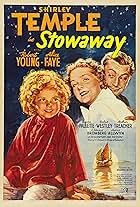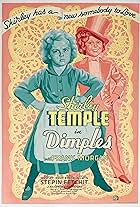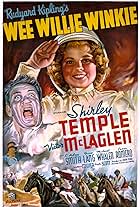Aggiungi una trama nella tua linguaAn orphan is provisionally adopted by the manager of a hotel populated by show-business people. The hotel's owner doesn't like the entertainers and wants the girl returned to the orphanage.An orphan is provisionally adopted by the manager of a hotel populated by show-business people. The hotel's owner doesn't like the entertainers and wants the girl returned to the orphanage.An orphan is provisionally adopted by the manager of a hotel populated by show-business people. The hotel's owner doesn't like the entertainers and wants the girl returned to the orphanage.
Edna May Oliver
- Sarah Wendling
- (as Edna Mae Oliver)
Claude Gillingwater
- Judge
- (as Claude Gillingwater Sr.)
George Brasno
- George Brasno
- (as George)
Olive Brasno
- Olive Brasno
- (as Olive)
The Brian Sisters
- Specialty
- (as Brian Sisters)
Trama
Lo sapevi?
- QuizMr Brasno asks Mike if he has anything for him and his wife, and Mike replies, "Buffalo, next week." The tap step the Brasnos do out of the room is called "Shuffle Off to Buffalo," or simply "Buffalo Step."
- BlooperWhen the "Hot and Happy Four" are checking into the Hotel Variety, they agree to pay a year in advance at $40 per week. Mr. Wendling hands Mr. Shea a check and says "52 times 40 is 2,008." Mr Shea is pleased with this amount and Betsy even compliments him on his arithmetic. Captions verify the line. The error is that 52 x 40 = 2,080, not 2,008.
- Citazioni
Betsy Brown: [singing] Don't wear a long face, it's never in style! Be optimistic and smile!
- ConnessioniFeatured in Gotta Dance, Gotta Sing (1982)
- Colonne sonoreLittle Miss Broadway
(1938) (uncredited)
Music by Harold Spina
Lyrics by Walter Bullock
Played over opening and closing credits
Also sung by George Murphy
Recensione in evidenza
"Little Miss Broadway" (20th Century-Fox, 1938), directed by Irving Cummings, presents popular child star Shirley Temple in a showbiz background story ranking one of the most musical of all her movies thus far. Not precisely a backstage musical in the typical sense of the 1930s bearing "Broadway" in the title, but a movie by which almost every other scene includes singing and dancing, and with a handful of fine tunes, the plot nearly becomes secondary.
The story opens in the auditorium of the Madrey Orphanage for Girls where the talented Betsy Brown (Shirley Temple) leads the quartet singing an optimistic song to an audience of cheerful little orphans. Moments later, Miss Hutchins (Jane Darwell), matron of the orphanage, announces that Betsy is leaving to go live with William J. "Pop" Shea (Edward Ellis), a close friend of her deceased parents, and his daughter, Barbara (Phyllis Brooks). Now a resident of the Hotel Variety in New York City, Betsy finds herself happily surrounded by a handful of unemployed vaudevillians living under the generosity of "Pop" Shea, who manages the place. Living across the street is the middle-aged grouch named Sara Wendling (Edna May Oliver), landlord of the Hotel Variety who detests both show people and loud noise, and intends to close down the hotel unless Shea comes up with the full payment of back rent. In order to help out, Betsy pleas with Miss Wendling, better known to her as "the old pumpkin," but to no avail. She does, however, succeed in charming Wendling's brother, Willoughby (Donald Meek), and her song and dance man nephew, Roger (George Murphy). Complications follow leading the actors to show off their musical talent in the courtroom s preceded by an old but lovable judge (Claude Gillingwater Sr.).
With music and lyrics by Walter Bullock and Harold Spina, the musical program includes: "Be Optimistic" (sung by Shirley Temple and the Brewster Twins); "Auld Lang Syne" (traditional New Year's Eve song); "How Can I Thank You?" (sung by Temple to Phyllis Brooks); "We Should Be Together" (sung and danced by George Murphy and Temple); "If All the World Were Paper" (sung by Temple); "When You Were Sweet 16" (by James Thornton); "Happy Birthday to You," "How Can I Thank You?" (reprise); "Be Optimistic" (reprise); "Thank You for the Use of the Hall" (sung by Temple); "I'll Take the High Road and You'll Take the Low Road" (traditional Scottish song); "Swing Me and Old-Fashioned Song," and "Little Miss Broadway"/ "I'll Build a Broadway for You" (sung and danced by Temple and Murphy).
The supporting cast features the likes of Jimmy Durante as Jimmy Clayton, leader of a swing band consisting of Eddie Collins, Syd Saylor, Jerry Colonna and Heinie Conklin; El Brendel as Ole, owner of a talented penguin; George Barbier as Mr. Fiske; George and Ella Brosno, a midget couple; The Brian Sisters, among many others. With a handful of fine character and veteran actors, many don't appear on screen long enough to make their performances count. Compared to others it appears that Jimmy Durante, one of the most notable and recognizable entertainers, to be regrettably the one whose has become the victim of severe editing. He's there but hardly shares any scenes opposite Temple, and in the finished product, he doesn't even get to sing nor dance in the popular Durante tradition. All this has been revealed when American Movie Classics presented one of its well constructed documentaries around 1997 titled, "Hidden Hollywood, From the Vaults of 20th Century-Fox," showcasing deleted scenes from Fox films, especially "Little Miss Broadway", many involving Durante, especially the Durante and Temple show-stopper, "Hop, Skip and Jump." How much more of Durante was filmed and scrapped is uncertain, but the reason given is so not to take away any attention from Temple. It has always been evident that "Little Miss Broadway" was originally intended to be a much longer film, around 85 minutes or so, since everything happens and ends so quickly.
"Little Miss Broadway" plays like an MGM film, especially those annual "Broadway Melody" musicals since singing and dancing takes more precedence in the story rather than on the stage. George Murphy, on loan from MGM, whose "We Should Be Together" dance number opposite Temple is reminiscent to her fancy footwork opposite Buddy Ebsen from "Captain January" (1936), where they do their fancy footwork ranging from floor to table tops. As the story goes, Murphy plays a nice guy and romantic interest to Shea's attractive daughter (Brooks). Edna May (misspelled Mae in the credits) Oliver, another resident MGM character actress, makes a fine villain, but in spite of her meanness, succeeds in making her nasty character lovable.
"Little Miss Broadway", which was distributed on video cassette in either the black and white and colorized format, played on numerous cable stations over the years, such as The Disney Channel in the early 1990s, American Movie Classics (1996-2001), and both Fox Movie Channel and Turner Classic Movies (TCM premiere: July 13, 2015) in original black and white format.
"Little Miss Broadway" may not work well to those with lack of patience or understanding towards movie musicals such as this, but standard to enjoyable by those familiar with the Temple formula: young orphan makes good. An ordinary musical at best highlighted by some lavish dance numbers credited to Geneva Sawyer and Nick Castle, ranking this a very optimistic film. Oh my goodness! (***)
The story opens in the auditorium of the Madrey Orphanage for Girls where the talented Betsy Brown (Shirley Temple) leads the quartet singing an optimistic song to an audience of cheerful little orphans. Moments later, Miss Hutchins (Jane Darwell), matron of the orphanage, announces that Betsy is leaving to go live with William J. "Pop" Shea (Edward Ellis), a close friend of her deceased parents, and his daughter, Barbara (Phyllis Brooks). Now a resident of the Hotel Variety in New York City, Betsy finds herself happily surrounded by a handful of unemployed vaudevillians living under the generosity of "Pop" Shea, who manages the place. Living across the street is the middle-aged grouch named Sara Wendling (Edna May Oliver), landlord of the Hotel Variety who detests both show people and loud noise, and intends to close down the hotel unless Shea comes up with the full payment of back rent. In order to help out, Betsy pleas with Miss Wendling, better known to her as "the old pumpkin," but to no avail. She does, however, succeed in charming Wendling's brother, Willoughby (Donald Meek), and her song and dance man nephew, Roger (George Murphy). Complications follow leading the actors to show off their musical talent in the courtroom s preceded by an old but lovable judge (Claude Gillingwater Sr.).
With music and lyrics by Walter Bullock and Harold Spina, the musical program includes: "Be Optimistic" (sung by Shirley Temple and the Brewster Twins); "Auld Lang Syne" (traditional New Year's Eve song); "How Can I Thank You?" (sung by Temple to Phyllis Brooks); "We Should Be Together" (sung and danced by George Murphy and Temple); "If All the World Were Paper" (sung by Temple); "When You Were Sweet 16" (by James Thornton); "Happy Birthday to You," "How Can I Thank You?" (reprise); "Be Optimistic" (reprise); "Thank You for the Use of the Hall" (sung by Temple); "I'll Take the High Road and You'll Take the Low Road" (traditional Scottish song); "Swing Me and Old-Fashioned Song," and "Little Miss Broadway"/ "I'll Build a Broadway for You" (sung and danced by Temple and Murphy).
The supporting cast features the likes of Jimmy Durante as Jimmy Clayton, leader of a swing band consisting of Eddie Collins, Syd Saylor, Jerry Colonna and Heinie Conklin; El Brendel as Ole, owner of a talented penguin; George Barbier as Mr. Fiske; George and Ella Brosno, a midget couple; The Brian Sisters, among many others. With a handful of fine character and veteran actors, many don't appear on screen long enough to make their performances count. Compared to others it appears that Jimmy Durante, one of the most notable and recognizable entertainers, to be regrettably the one whose has become the victim of severe editing. He's there but hardly shares any scenes opposite Temple, and in the finished product, he doesn't even get to sing nor dance in the popular Durante tradition. All this has been revealed when American Movie Classics presented one of its well constructed documentaries around 1997 titled, "Hidden Hollywood, From the Vaults of 20th Century-Fox," showcasing deleted scenes from Fox films, especially "Little Miss Broadway", many involving Durante, especially the Durante and Temple show-stopper, "Hop, Skip and Jump." How much more of Durante was filmed and scrapped is uncertain, but the reason given is so not to take away any attention from Temple. It has always been evident that "Little Miss Broadway" was originally intended to be a much longer film, around 85 minutes or so, since everything happens and ends so quickly.
"Little Miss Broadway" plays like an MGM film, especially those annual "Broadway Melody" musicals since singing and dancing takes more precedence in the story rather than on the stage. George Murphy, on loan from MGM, whose "We Should Be Together" dance number opposite Temple is reminiscent to her fancy footwork opposite Buddy Ebsen from "Captain January" (1936), where they do their fancy footwork ranging from floor to table tops. As the story goes, Murphy plays a nice guy and romantic interest to Shea's attractive daughter (Brooks). Edna May (misspelled Mae in the credits) Oliver, another resident MGM character actress, makes a fine villain, but in spite of her meanness, succeeds in making her nasty character lovable.
"Little Miss Broadway", which was distributed on video cassette in either the black and white and colorized format, played on numerous cable stations over the years, such as The Disney Channel in the early 1990s, American Movie Classics (1996-2001), and both Fox Movie Channel and Turner Classic Movies (TCM premiere: July 13, 2015) in original black and white format.
"Little Miss Broadway" may not work well to those with lack of patience or understanding towards movie musicals such as this, but standard to enjoyable by those familiar with the Temple formula: young orphan makes good. An ordinary musical at best highlighted by some lavish dance numbers credited to Geneva Sawyer and Nick Castle, ranking this a very optimistic film. Oh my goodness! (***)
I più visti
Accedi per valutare e creare un elenco di titoli salvati per ottenere consigli personalizzati
- How long is Little Miss Broadway?Powered by Alexa
Dettagli
- Data di uscita
- Paese di origine
- Lingua
- Celebre anche come
- L'idolo di Broadway
- Luoghi delle riprese
- Azienda produttrice
- Vedi altri crediti dell’azienda su IMDbPro
- Tempo di esecuzione1 ora 12 minuti
- Colore
- Proporzioni
- 1.37 : 1
Contribuisci a questa pagina
Suggerisci una modifica o aggiungi i contenuti mancanti

Divario superiore
By what name was Little Miss Broadway (1938) officially released in Canada in English?
Rispondi

